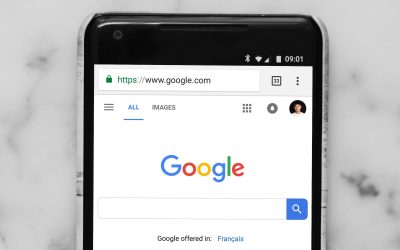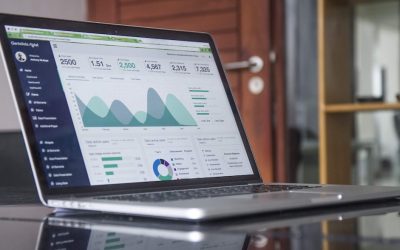
Pay Per Click marketing (PPC) is synonymous with Google Ads and is one of the best ways to rank high in SERPs by paying for it, usually per click. Not only is it one of the most potent ways to generate highly targeted traffic, but you don’t have to wait months to rank for the keywords you’re trying to target.
However, search ad platforms, like Google AdWords, aren’t as easy as just paying for the keywords you want to rank for.
There are a few other factors that search engines consider, which affect how much you pay per click and where you rank in terms of sponsored results, i.e., above all, sponsored results, at the bottom of Google search or to the right of the page.
Setting up your first Google AdWords campaign can feel intimidating. In this article, we’ll go over a few pointers that should help you make the most out of your advertising dollars!
5 Tips to Help with Your Pay Per Click Marketing
Avoid Using “broad match” PPC Keywords
One of the most common mistakes first-timers make is not distinguishing between broad match and exact match settings. The term “broad match” suggests that your ads will appear, not only for the chosen keyword but also similar phrases as well as relevant variations that the AI deems to be appropriate for the target audience.
Even though the “broad match” option can help improve the exposure of the ads, they also attract traffic that isn’t relevant to your website or niche, which means you’re paying for traffic that can’t convert.
For instance, if you are targeting the keyword “Roofers in Manhattan” as part of your search marketing campaign and use the ‘broad match’ option, ads may show up for terms like “cheap roofing services in Manhattan,” “Bad roofers in Manhattan.” Etc., in most cases, this broad match isn’t going to be relevant, even though your keyword is, in particular, very specific.
Our suggestion is to use exact match keywords to bring in targeted traffic without draining your advertising budget.
Separate Your Content and Search Ad Placements
The search network placement mainly refers to where the PPC ads will appear in a search query that includes your keywords. On the other hand, content network placement, or the display network, usually means that your ads will be displayed as blocks or a text ad on websites instead of the search engine results pages.
Many companies and marketers who are new to Google’s AdWords will often use both options when starting their first campaign and often also use the exact keywords for ad content and keywords for every click. Usually, advertisers will also pay the same money for every click.
However, the specific queries and websites that may trigger your ad’s placement in the content network may differ from the results it triggers on the search network. That’s why running the same ads on both networks will cost you money more money with no results because of irrelevant placement.
Customizing your ads may take more time and effort; it is more efficient to tailor the ads, ad copy, keyword bid, and keywords for each network individually.
Not Using Enough Negative Keywords
Many PPC marketers tend not to use enough negative keywords. Adding negative keywords to ad groups enables you to specify when the ad should appear mainly. Take, for instance, “Roofers in Manhattan” and “The Best Roofers in Manhattan,”
The word “Best” can be designated as a negative keyword that will help eliminate irrelevant ad placements.
Target Your Ad Campaigns Efficiently, Learn from Your Competitors
We know from experience that many newbie advertisers aren’t precise enough with their campaign targeting. Increasing efficiency often requires customizing who should see your ads on the search results page.
Here are a couple of areas you will want to consider when running targeted campaigns for any search term:
Have an ad group for each country – If you are advertising internationally or in several countries, we suggest having a separate ad group for each. If not, limit your ad placements to US customers.
Micro-geographic focusing – If you are creating an ad for a local business, let’s say, for a “car repair shop in Huston,” use the micro-geographic targeting feature to choose the specific zip codes where the ads will appear based on the delivery area of your business.
Set the time of day – If you observe that the ads generate the most conversions in the afternoon, then set them to run in the afternoon only.
Match the landing pages to your ads – if you are running a PPC campaign, make sure that the visitors that click are sent to a page that is relevant to the ad. For instance, if the advertising is for a 50% discount on infant’s clothing, you don’t want to send them to the main page, where there are potentially dozens of clothes listed.
Instead, your landing page should be the ‘infants clothing page.’ If you send them to irrelevant pages, that will result in a lower ad quality score, meaning you pay more for each click.
Test Your Ad Copy – At times, writing an effective pay-per-click advertising ad copy can be challenging. However, we strongly advise that you write and test different versions of your ads to shortlist the ones that work best.
The majority of PPC (pay per click) platforms allow users to set up split tests to rotate ads for each targeted keyword. However, to ensure that the test is set up effectively, you need to adjust the settings so that the ads are served randomly as per the formula used by the platform.
Always Track Your ROI
Managing effective PPC campaigns to improve ROI requires knowing which clicks are converting to sales. Fortunately, generating this data is free, and all you need is to tie the PPC account to your Google Analytics account to track which ads were clicked and brought visitors to your website resulting in sales.
Not having this information makes it near impossible to adjust your bids and remove ads that aren’t performing as well.
Conclusion
PPC advertising can be an immensely effective way of generating traffic and consequently conversions. However, if you’re not careful AdWords, can just as quickly drain your advertising budget with little to show in the way of results.
That’s why it is so essential to fine-tune and optimize your campaign.
The latest posts from the blog:
SEO vs PPC
[seopress_breadcrumbs] Getting traffic should be and in most cases is the goal of all online marketing efforts. In fact, the success of a business online relies highly on the amount of traffic generated and the quality of that traffic. In most cases, the subject of...
read moreThe Different Types of Digital Marketing
[seopress_breadcrumbs] In the past decade, we’ve watched as digital marketing has become a significant part of an organization’s overall marketing strategy. Not only does it allow businesses to tailor their messages specifically to their target audience...
read moreWhat is PPC Advertising? (AKA Pay Per Click)
[seopress_breadcrumbs] Most people who are new to digital marketing or internet marketing may have heard about pay-per-click advertising (PPC) but may not know much beyond the fact that you need to pay for every click. However, there is much more to...
read moreTop 7 Benefits of PPC Marketing and Advertising
[seopress_breadcrumbs] As experts in the internet marketing industry, we often run into clients and individuals who can't seem to see the value in Pay Per Click (PPC) advertising. You could show them all the statics in the world, but it may still not be...
read moreAdvantages and Disadvantages of Digital Marketing
[seopress_breadcrumbs] Today's business and commercial world is to a large extent based around online activity. Where the internet was once mostly informational only, now all kinds of everyday things are done at a computer, tablet, or cell phone screen from ordering...
read moreABOUT ITONIC
A full-service digital marketing agency based in New York & London. Delivering world-class results to hit our revered clients. Hitting KPI's across Search, Social & Display.
Email: hello@iTonic.com
US: +1 646-583-0068
UK: +44 20 8638 0668
© iTONIC.COM 2024. All rights reserved
Subscribe to newsletter





